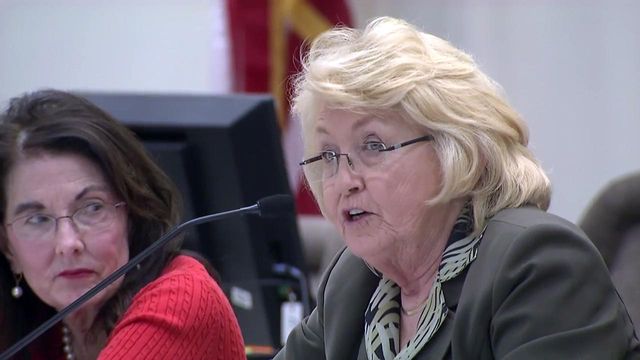Study aims to end school calendar wars
Despite criticism from a coastal lawmaker, a proposal to study the effect on student performance of moving up the start date of the school year in 20 North Carolina counties is moving forward in the House.
Posted — UpdatedSchool calendars have been an annual battlefield in the General Assembly for more than a decade, when the grassroots Save Our Summers group successfully lobbied to etch the start and end dates to school years into state law. Now, traditional-calendar schools cannot start classes before "the Monday closest to Aug. 26" and must end by the second week of June.
Since then, the tourism industry has beaten back any effort to change the calendar law. That hasn't stopped lawmakers from trying to get around those restrictions for their local school districts, however. Dozens of so-called "calendar flexibility" bills are filed every year, but other than those in response to severe weather that shuts schools for extended periods, few ever pass.
Rep. Harry Warren, R-Rowan, said 39 flexibility bills have been filed in the House and another 13 in Senate so far this year, covering 69 of the state's 100 counties. Instead of debating exceptions to the rule, he wants a study to determine if the rule is broken and needs to be scrapped.
Under House Bill 389, school districts in 20 rural counties, including Duplin, Northampton, Robeson and Wilson, could take part in a three-year pilot project that would allow them to start their school year as early as Aug. 10 or end them as late as mid-June. The study would start in either 2018-19 or 2019-20, and districts could opt out if they're not interested, Warren said.
Shifting the calendar would allow districts to align their schedules with community colleges for high school students wishing to take college courses and would allow them to have first semester exams before the winter break, he said.
The districts were chosen based on the percentage of students living in poverty, overall county wealth, student performance on standardized tests and whether the district tries to coordinate some classes with the local community college, he said.
"The purpose behind this bill is to show that one size does not fit all," Warren told the House K-12 Education Committee on Tuesday. "We have studies that show calendar flexibility has a positive impact on student performance, particularly in areas with a high poverty population."
The program would allow North Carolina to collect data to either support or refute those studies, he said, noting previous research done in the state have been "slanted toward the tourism industry" by making some assumptions on vacation spending and extrapolating those numbers to suggest a major economic impact.
Rep. Frank Iler, R-Brunswick, said he quickly calculated during the committee meeting that moving school start dates up by two weeks would cost about $5 billion in lost tourism revenue over 10 years by eliminating 20 percent of the summer vacation season.
"Just the conservative numbers I ran sitting here – very rough – would dwarf what we're talking about on HB2," Iler said, referring to an Associated Press estimate that House Bill 2, the controversial law limiting LGBT rights, would cost North Carolina $3.7 billion in lost business over 12 years.
"I hope we'll think long and hard about putting 19 counties, much less 69 counties or 100 counties, into a program like this," he said. "This is a bad idea. We've filled up the calendar and manipulated the calendar from up here for a long time. Flexibility is good, but there should be a limit."
"What we need to do is look at what the results are in student achievement, because that's what education is about," an obviously irritated Warren said.
The bill passed the committee on a voice vote and will make one more stop before heading to the House floor.
The committee also approved a second bill Tuesday that would allow school districts to move their start dates up to Aug. 15 to better align with community college schedules. Sponsor Rep. Chuck McGrady, R-Henderson, said all but two of the state's 58 community colleges start on or after Aug. 15, with the other two starting on Aug. 14.
Related Topics
• Credits
Copyright 2024 by Capitol Broadcasting Company. All rights reserved. This material may not be published, broadcast, rewritten or redistributed.






